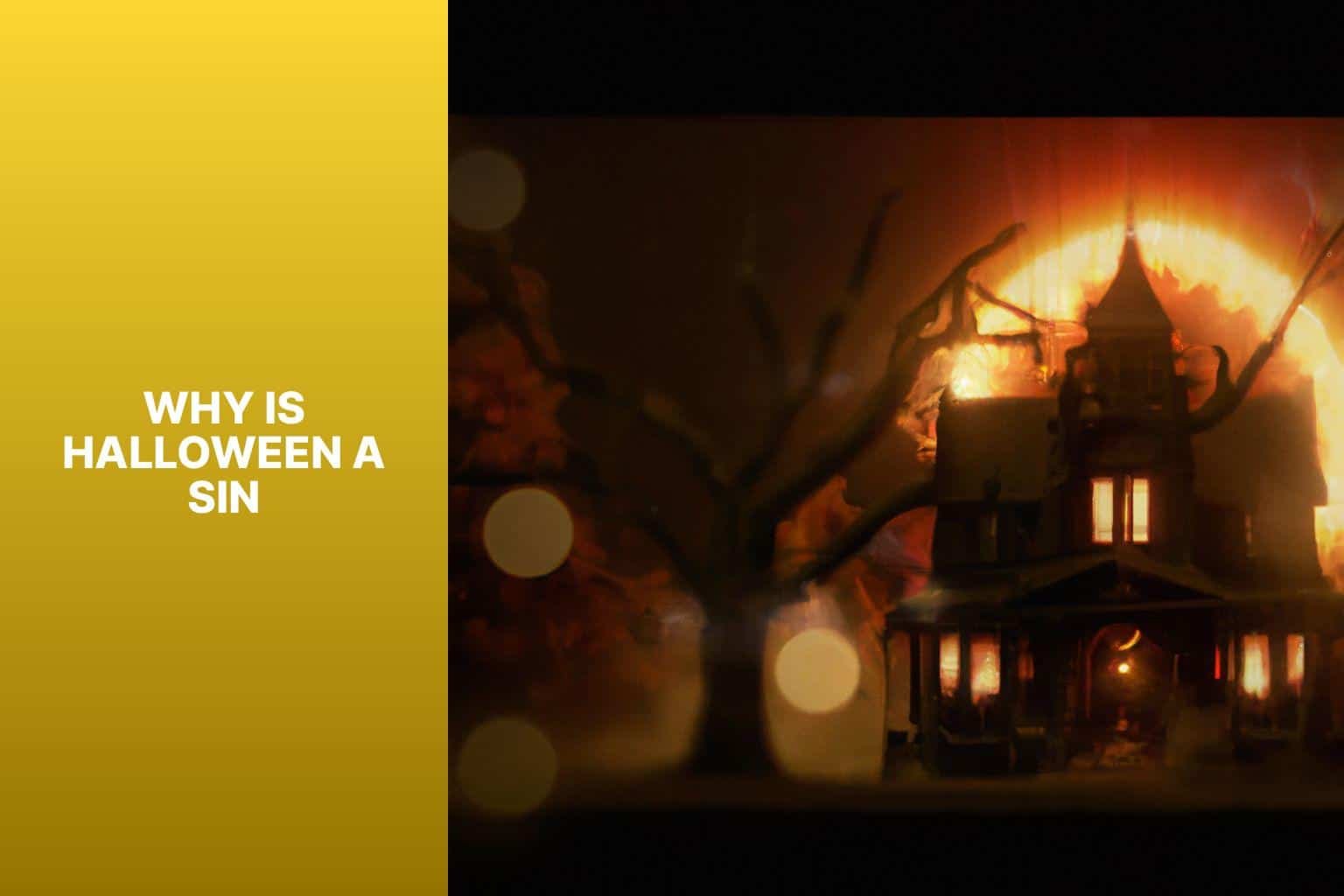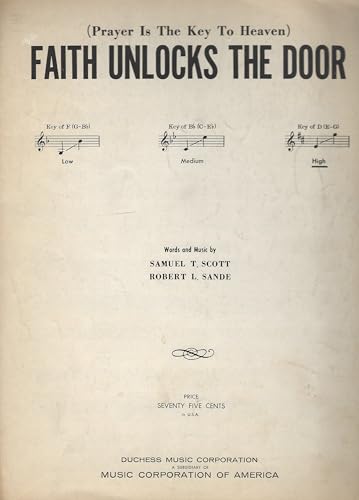Halloween, a widely celebrated holiday, has generated discussion and controversy surrounding its perceived association with sin. To understand why some view Halloween as sinful, it is important to explore the origins of Halloween, as well as the concept of sin itself.
Understanding Halloween involves delving into its historical background and recognizing the influence of pagan traditions. Halloween finds its roots in ancient Celtic festivities, particularly the festival of Samhain, which marked the end of the harvest season and the beginning of winter. Over time, Halloween evolved and absorbed various cultural and religious elements.
Sin, on the other hand, is a religious and moral concept that refers to actions or behaviors deemed to be against divine laws or principles. Sin is defined differently across different religious traditions, but it generally signifies a departure from righteousness or moral goodness.
Religious perspectives on Halloween vary. Some interpretations consider Halloween and its associated activities as sinful due to the holiday’s pagan origins and its association with supernatural themes. Others argue that participation in Halloween activities is a personal choice that does not inherently lead to sin.
The controversy surrounding Halloween as a sin is complex, with arguments both supporting and challenging this perception. Some arguments supporting Halloween as sinful highlight concerns about the glorification of darkness, occult practices, and the potential for encouraging immoral behavior. Conversely, arguments challenging the perception of Halloween as sinful emphasize the secular and lighthearted nature of modern celebrations, focusing on the harmless fun and community spirit it promotes.
Ultimately, determining whether Halloween is sinful or not depends on an individual’s beliefs, values, and religious convictions. It is essential for individuals to reflect on their own perspectives and consider the potential impact of participating in Halloween activities on their personal faith and values.
Key takeaway:
- Halloween and sin: Some religious perspectives interpret Halloween as sinful, raising concerns about its association with pagan traditions and viewing certain activities as sinful acts.
- Controversy regarding Halloween: There are arguments both supporting and challenging the perception of Halloween as a sinful occasion, highlighting the diversity of opinions on the matter.
- Personal perspective: It is important for individuals to reflect on their own beliefs and values when considering participation in Halloween activities and to consider the potential impact of such activities on themselves and others.
Understanding Halloween
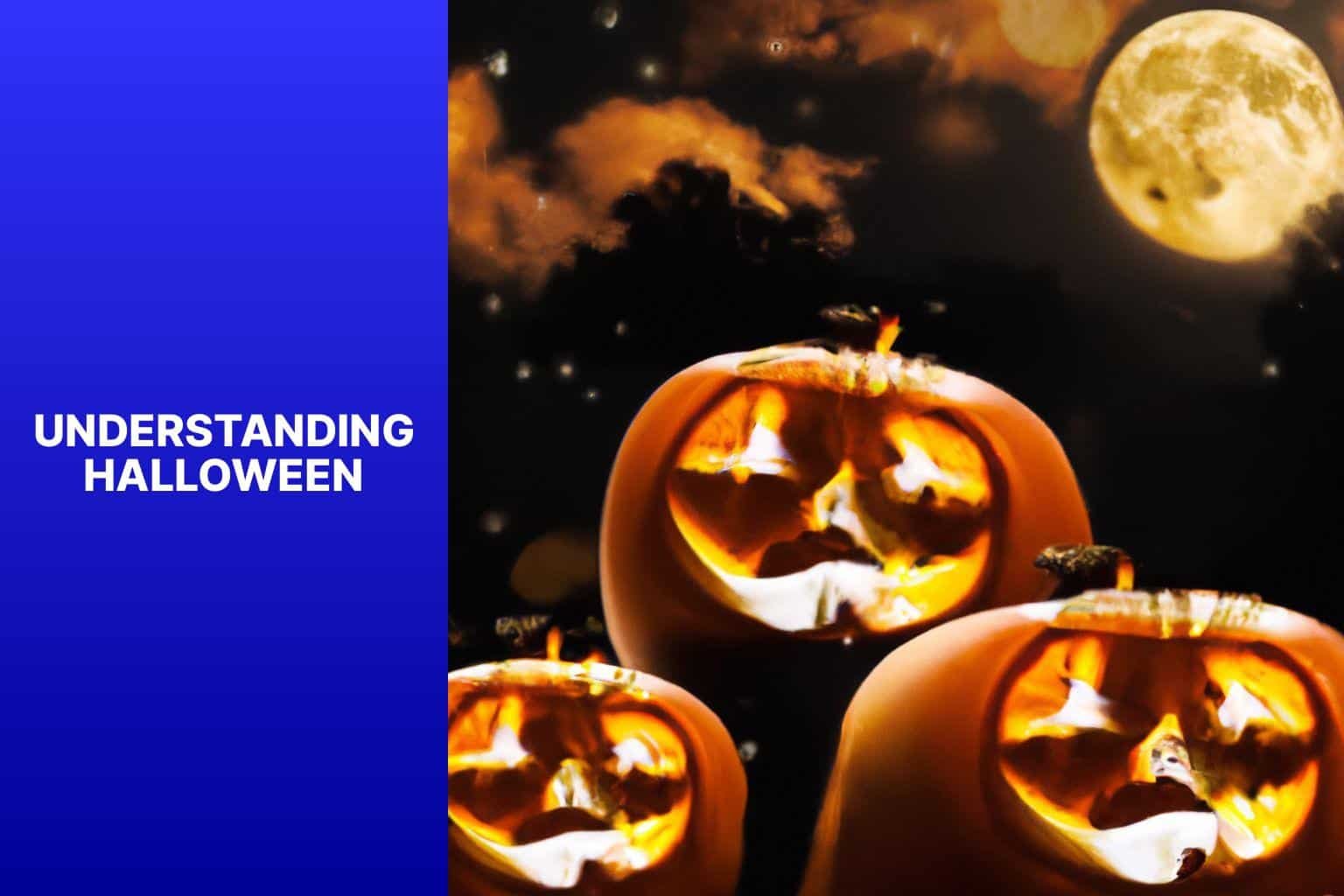
Photo Credits: Rickyshalloween.Com by Gerald Wright
Halloween is a holiday celebrating the eve of All Saints’ Day on October 31st. It has roots in ancient Celtic traditions and has evolved over time to become a festive occasion filled with costumes, decorations, and activities like trick-or-treating. Understanding Halloween involves recognizing its historical and cultural significance.
Halloween lets people of all ages engage in fun activities. Children dress up in costumes and go trick-or-treating, while adults enjoy themed parties with decorations. This holiday allows individuals to showcase creativity and express themselves through their costumes.
Halloween’s origins can be traced back to the ancient Celtic festival of Samhain. It marked the end of the harvest season and the belief that the boundary between the living and the dead was blurred. People wore costumes and lit bonfires to keep evil spirits away. As time passed, the holiday evolved and incorporated elements from different cultures, including Christian traditions.
Understanding Halloween means recognizing its cultural significance. It has become a symbol of community spirit as neighborhoods come together to decorate, hold events, and share in the joyful atmosphere. While some may have religious or moral objections, for many people, Halloween is simply a time to have fun and celebrate creativity.
What is Sin?
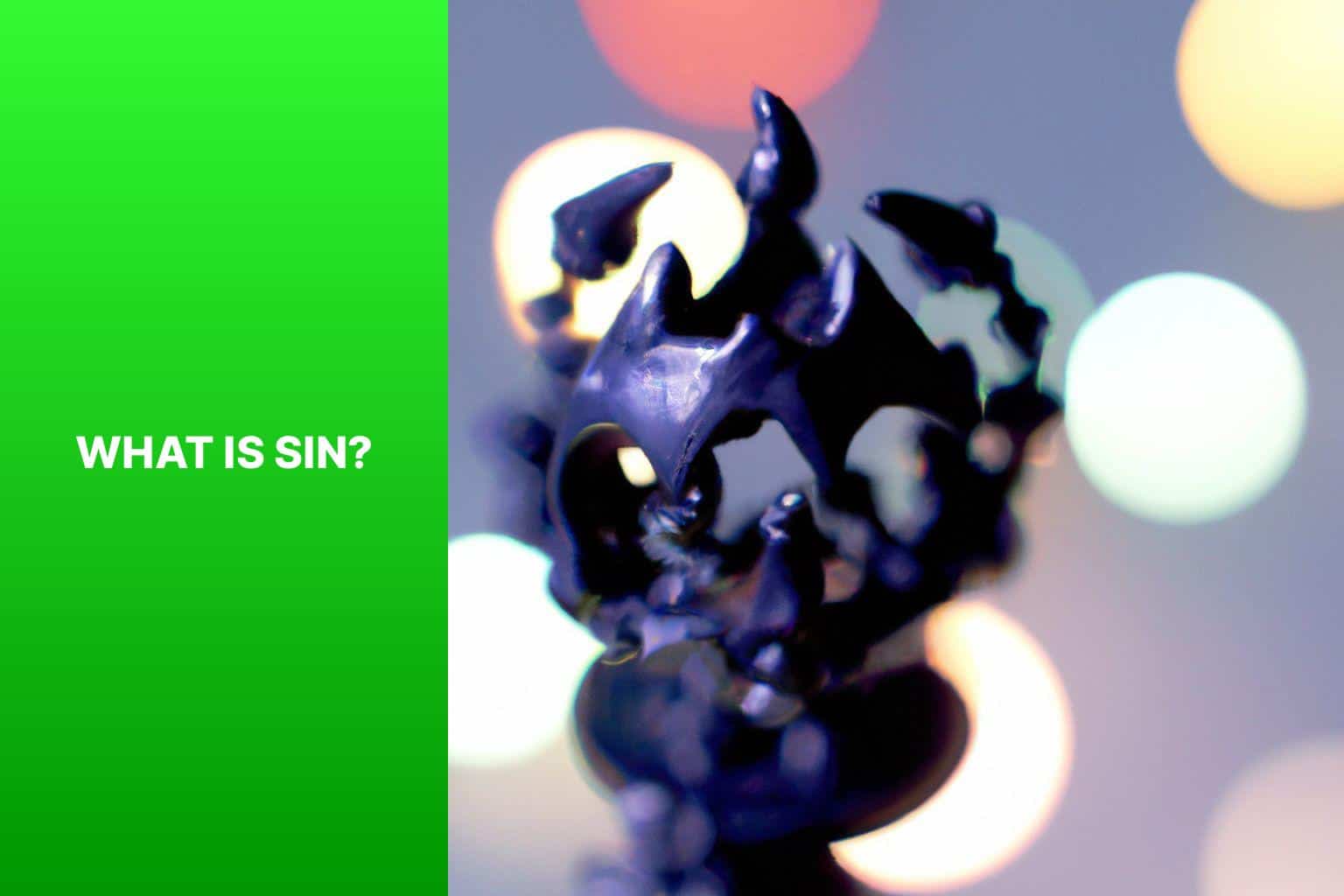
Photo Credits: Rickyshalloween.Com by Zachary Miller
Sin, what is it? Sin can be defined as an act or thought that deviates from moral or religious principles. It is a conscious decision to go against what is considered right. It is important to note that different religions and belief systems may have their own interpretations of sin, but at its core, it involves breaking ethical standards. Sin is not something that happens by chance; it is a deliberate choice made by an individual. It is not simply about breaking rules, but rather a conscious decision to disregard what is considered morally correct or virtuous. The concept of sin is not exclusive to any particular culture or religion; it is a universal concept that has existed throughout history. While the understanding of sin may vary, it generally involves acknowledging wrongdoing and the potential consequences that result from it.
How is Sin Defined?
Sin is the violation of religious or moral principles. It is an act or thought that is morally wrong or unacceptable according to a particular belief system. The definition of sin varies across religions. In Christianity, sin is often defined as disobeying God’s commandments or acting contrary to the teachings of Jesus Christ.
Sin is a conscious choice or action that goes against what is morally right. It is a willful violation of moral principles or ethical standards. It can manifest in actions such as lying, stealing, cheating, or engaging in harmful behaviors.
The concept of sin is accompanied by a belief in a divine or moral law that determines right and wrong. Sin is seen as a deviation from this law or an offense against a higher power. It is believed to have consequences in both this life and the afterlife, depending on the religious or cultural context.
Understanding how sin is defined is essential for individuals who adhere to a religious or moral framework. It guides their actions and behavior, providing a basis for ethical decision-making and moral accountability. By following the principles and teachings that define sin, individuals can strive to live a righteous and virtuous life based on their beliefs.
What are Some Common Examples of Sin?
Lying: providing false information.
Stealing: taking someone else’s property without permission.
Cheating: engaging in dishonest practices for an unfair advantage.
Gossiping: spreading rumors or discussing others negatively.
Adultery: engaging in sexual activity outside of a committed relationship.
Anger: harboring resentment or hostility towards others.
Jealousy: feeling envious or resentful towards others’ possessions, achievements, or relationships.
Greed: excessive desire for wealth, possessions, or power.
Pride: excessive belief in one’s abilities, superiority, or importance.
Gluttony: overindulgence or overconsumption of food or drink.
Sloth: laziness or lack of motivation to fulfill obligations or responsibilities.
Exploring the Origins of Halloween
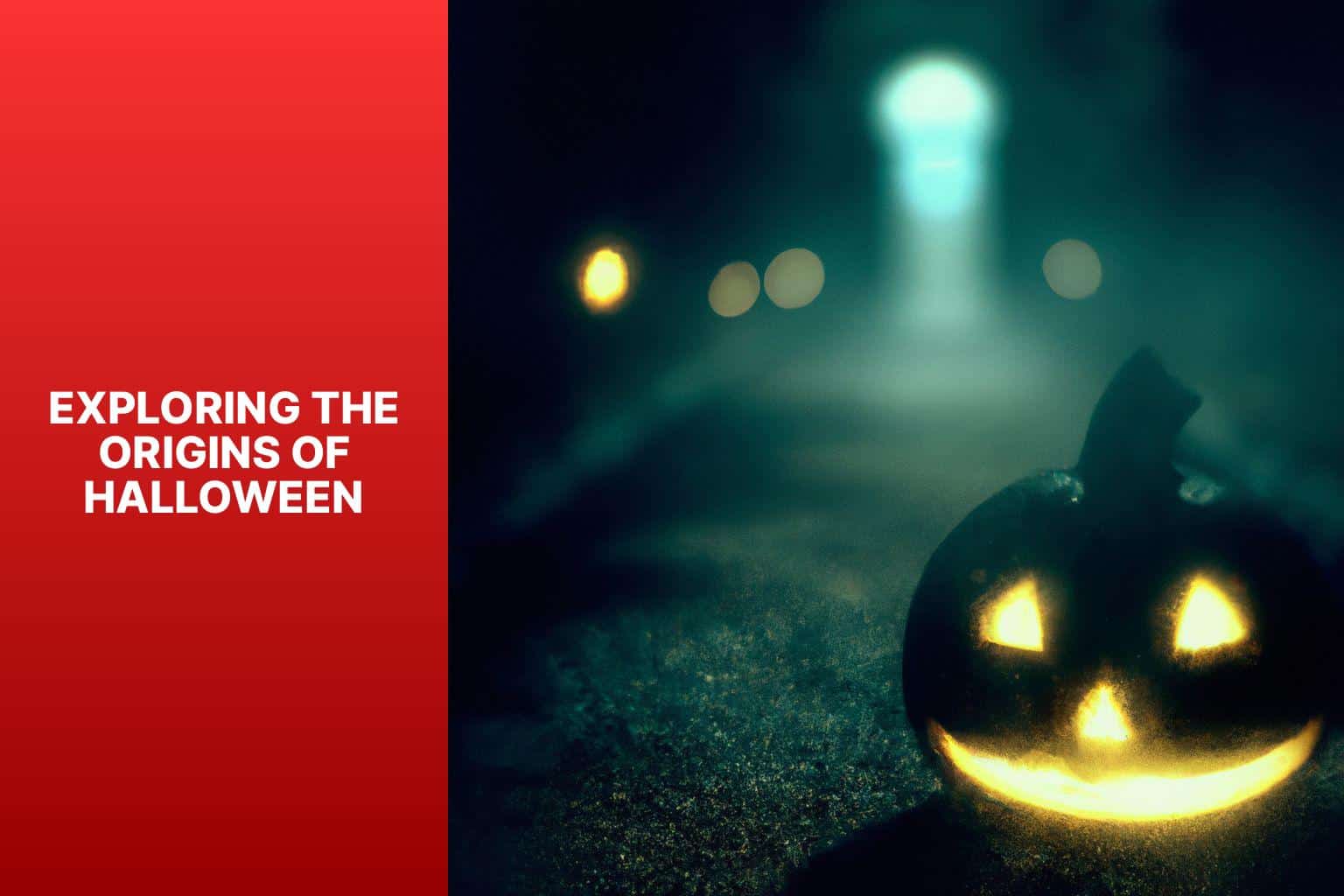
Photo Credits: Rickyshalloween.Com by Jesse Allen
Unravel the fascinating origins of Halloween as we delve into the historical background of this enigmatic celebration and explore the intriguing influence of pagan traditions. Step into the realm of ancient customs and rituals as we uncover the captivating story behind this beloved holiday. Get ready for a journey filled with mysterious origins and cultural connections that have shaped Halloween into what it is today.
Historical Background of Halloween
Halloween has a historical background dating back centuries, originating from the ancient Celtic festival of Samhain. Celebrated on October 31st, Samhain marked the end of the harvest season and the beginning of winter. This festival blurred the boundary between the living and the dead, allowing spirits to roam the earth.
During the Roman Empire, Samhain merged with two Roman celebrations, Feralia and Pomona. Feralia was a festival honoring the dead, while Pomona celebrated the Roman goddess of fruits and trees. These customs and traditions greatly influenced Halloween, including the offering of food and treats to appease spirits.
As Christianity spread, the Church aimed to replace pagan festivals with Christian holidays. In the 7th century, Pope Boniface IV designated November 1st as All Saints’ Day, a day to honor all saints and martyrs. The night before, October 31st, was then known as All Hallows’ Eve, which eventually evolved into Halloween.
The historical background of Halloween showcases a blend of Celtic, Roman, and Christian traditions. It represents a time to honor the dead and celebrate the harvest season. While Halloween has different meanings across cultures, its enduring significance and observed traditions can be traced back to its historical roots.
Influence of Pagan Traditions
The incorporation of pagan traditions in Halloween is crucial to comprehend the origins and customs of the holiday. Pagan practices, which were prevalent in ancient civilizations such as the Celtic festival of Samhain, greatly influenced the formation of Halloween as we know it.
1. Ancient Roots: Pagan traditions, deeply rooted in the worship of nature and the celebration of harvest, played a significant role in the development of Samhain. The Celts residing in Ireland, the United Kingdom, and northern France observed this festival, which marked the conclusion of the harvest season.
2. Transition to Halloween: Christianity spread across these regions, leading the Church to try and assimilate pagan festivities, including Samhain. All Saints’ Day, also known as All Hallows, was introduced on November 1st to honor Christian saints. The evening before it became known as All Hallows’ Eve, eventually transforming into Halloween.
3. Incorporation of Pagan Customs: Christianity merged with pagan traditions, resulting in the integration of certain customs from Samhain into Halloween. For instance, the practice of dressing up in costumes originated from the Celts wearing disguises to ward off evil spirits during Samhain.
4. Symbolism and Rituals: Pagan beliefs in spirits, divination, and sacred bonfires also made their way into Halloween. Carved pumpkins, ghost stories, and rituals like bobbing for apples all have their origins in ancient pagan practices.
5. Modern Interpretations: While Halloween has become a secular and commercialized holiday in many parts of the world, it still retains influences from pagan traditions. Several aspects of Halloween celebrations showcase these customs and rituals.
Understanding the influence of pagan traditions on Halloween serves to contextualize the holiday and explore its cultural and historical connections. It emphasizes the significance of Halloween both in the past and present.
Religious Perspectives on Halloween
Religious Perspectives on Halloween – Uncover different interpretations of Halloween as sinful and explore various perspectives on participating in Halloween activities. From questioning the morality of dressing up in costumes to examining the spiritual implications of trick-or-treating, this section delves into the religious beliefs and values that shape how Halloween is perceived.
Interpretation of Halloween as Sinful
Halloween is a topic of debate in religious communities, with some interpreting it as sinful due to its association with pagan traditions, darkness, and fear.
These individuals believe that participating in Halloween activities can promote evil or occult practices, contradicting their faith and values.
Not all religious perspectives view Halloween as sinful. Some have a different interpretation and see it as a harmless cultural celebration and an opportunity for creativity, fun, and social bonding.
To foster tolerance and mutual respect, it is important to engage in respectful conversations and understanding with those who hold different perspectives on the sinful nature of Halloween.
Views on Participation in Halloween Activities
Participation in Halloween activities elicits diverse views. Views on Participation in Halloween Activities vary greatly. Some view it as fun, while others see it as sinful. These perspectives often come from religious beliefs and values.
Those who view Halloween as sinful point to its origins, association with pagan traditions, and focus on death and the supernatural. They firmly believe that participating in these activities goes against their religious teachings and promotes values contrary to their faith.
On the other hand, others challenge the perception of Halloween as sinful. They argue that Halloween has evolved over time and can now be celebrated without objectionable activities. They emphasize the community and togetherness fostered through Halloween events.
Ultimately, views on participation in Halloween activities depend on individual beliefs and values. Some individuals find certain activities align with their personal convictions, while others choose to abstain based on religious teachings. It is important for individuals to reflect on the potential impact of their choices and make decisions consistent with their principles.
Addressing the Controversy
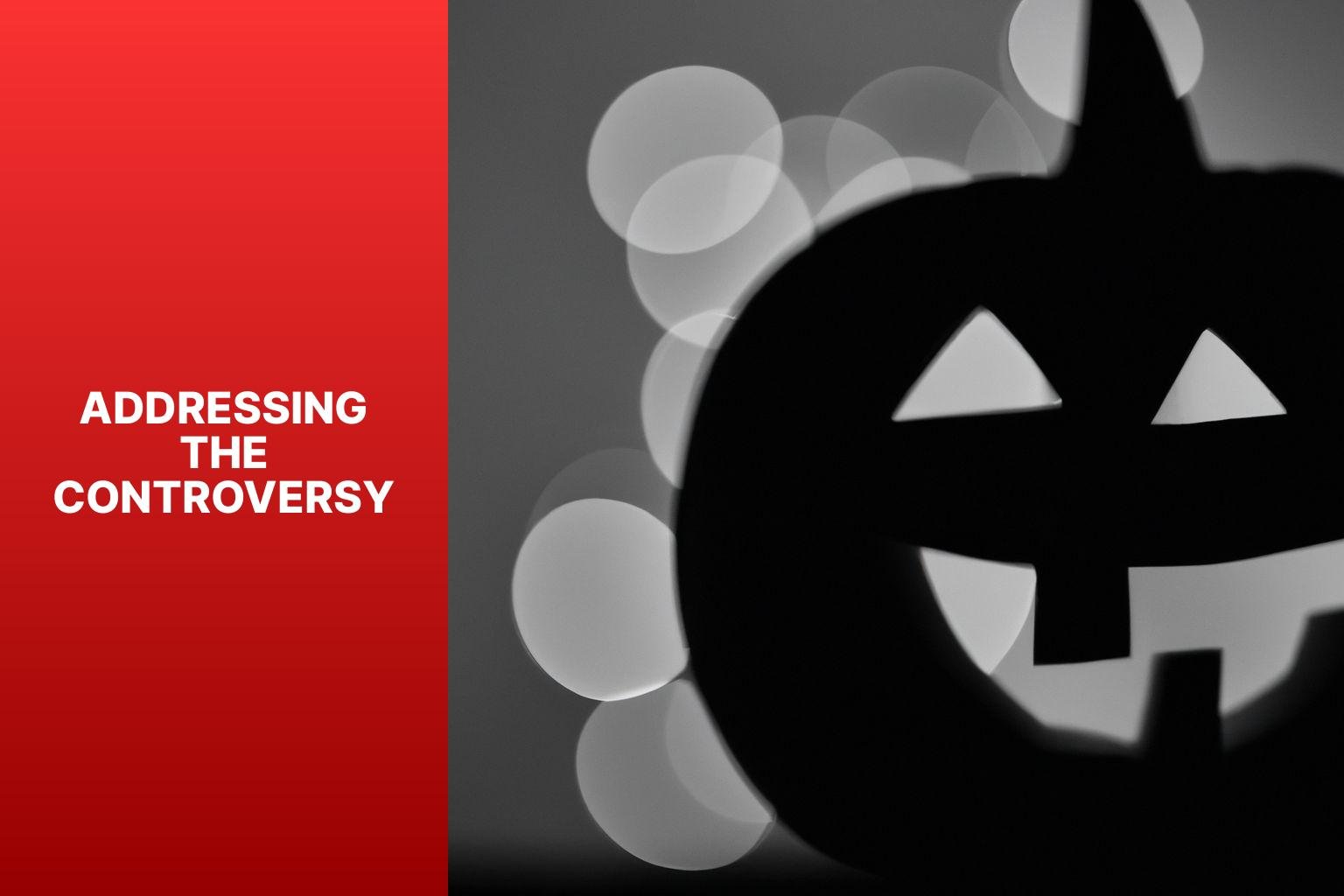
Photo Credits: Rickyshalloween.Com by Dennis Thompson
In this section, we address the controversy surrounding Halloween and its perception as a sin. Get ready to dive into the arguments supporting Halloween as sinful and those challenging this perspective. Discover the intriguing facts, events, and statistics that shed light on this ongoing debate. Grab a seat and prepare to explore the different viewpoints on this contentious topic. It’s time to assess the claims and counterclaims surrounding Halloween’s alleged sinfulness.
Arguments Supporting Halloween as Sinful
Several arguments support Halloween as a sinful holiday. Some religious groups believe that Halloween promotes the worship of evil spirits and glorifies darkness and death. They argue against participating in activities like dressing up as witches, ghosts, or demons, which they see as promoting sinful practices. Another concern is the pagan origins of Halloween, which these groups believe perpetuates traditions contrary to their religious teachings. The focus on fear and horror during Halloween can be viewed as promoting negative and sinful emotions, such as anxiety and terror, which may negatively affect one’s spiritual and emotional well-being.
Considering these arguments, individuals who hold these beliefs may choose to refrain from participating in Halloween activities entirely or seek alternative celebrations that align more closely with their religious beliefs. It is important to respect and understand different perspectives on Halloween and engage in open dialogue to find common ground and respect for each other’s beliefs.
Arguments Challenging the Perception of Halloween as Sinful
Arguments challenging the perception of Halloween as sinful arise from the belief that it is possible to engage in Halloween activities without committing sin. One viewpoint is that Halloween is primarily a cultural holiday that has evolved over time, losing its original religious significance. Many individuals see Halloween as a joyous celebration of costumes, candy, and community, rather than a day associated with sin.
Another perspective is that Halloween allows for self-expression and creativity. People of all ages take pleasure in donning costumes and engaging in imaginative play, considering it a form of artistic expression and a means to celebrate individuality.
Some argue that Halloween promotes social connections and a sense of community. Trick-or-treating and attending parties create opportunities for neighbors and friends to come together, fostering stronger relationships and a greater sense of belonging.
Remember, when discussing contentious topics like Halloween and sin, it is crucial to approach different viewpoints with an open mind and respect for the beliefs and values of others. By fostering understanding and compassion, we can contribute to a more inclusive and tolerant society.
Finding Personal Perspective
Finding our personal perspective on Halloween involves considering our individual beliefs and values, as well as reflecting on the impact of Halloween activities. By exploring these sub-sections, we can uncover the deeper meaning behind this contentious holiday and navigate the moral complexities it presents. Let’s delve into our own thoughts and experiences to find the understanding that resonates with us.
Considering Individual Beliefs and Values
Considering individual beliefs and values is crucial in determining one’s perspective on whether Halloween is a sin. Personal beliefs shape the understanding of moral acceptability. Some individuals view Halloween as a harmless celebration, while others see it conflicting with their religious beliefs.
Respecting diverse perspectives is important because moral judgments vary among individuals. What one person sees as sinful, another may view as harmless fun.
When it comes to Halloween, individuals should reflect on their own beliefs and values to determine if any aspects of the holiday conflict with their moral code. This may involve examining religious teachings, consulting spiritual leaders, or engaging in introspection.
Considering beliefs and values helps individuals make decisions aligned with their moral compass. It allows them to navigate the perception of Halloween as a sin and find a perspective that aligns with their convictions. By respecting diverse beliefs and values, individuals can foster understanding and tolerance.
Reflecting on the Impact of Halloween Activities
Reflecting on the Impact of Halloween Activities helps individuals understand the significance of their participation. These activities can have both positive and negative impacts. They provide opportunities for social interaction and community bonding, and can be enjoyable for children and adults. Some activities may conflict with personal values or religious beliefs.
Reflecting on the impact of Halloween activities involves considering how they align with one’s moral principles. Some individuals may feel that certain costumes or decorations promote violence or negative behaviors. Others may be concerned about cultural appropriation or the commercialization of a sacred holiday. Reflecting on these concerns can lead to a more conscious approach to celebrating Halloween.
Suggestions for reflecting on the impact of Halloween activities include discussing personal values with family and friends, researching the origins and meanings behind traditions, and exploring alternative ways to celebrate that align with one’s beliefs. Taking ownership of one’s choices can ensure a positive impact on well-being and the community.
By reflecting on the impact of Halloween activities, individuals can make decisions that align with their values and beliefs while still enjoying the holiday. Each person’s reflection will be unique, considering personal circumstances and beliefs when determining the best approach to Halloween celebrations.
Frequently Asked Questions
Is Halloween a sin according to Christianity?
There are differing views among Christians regarding whether Halloween is a sin or not. Some Christians see Halloween as a harmless and fun holiday for children, while others view it as an evil celebration associated with the occult. Ultimately, the decision to celebrate Halloween is a personal one, but it should not cause division in the body of Christ or lead others to stumble in their faith.
What are the pagan origins of Halloween?
Halloween has pagan origins that can be traced back to Celtic customs over 2,000 years ago. It was initially known as “All Hallows’ Eve” and was celebrated as a pagan winter solstice celebration by Celtic pagans. The customs and traditions associated with Halloween, such as dressing up, fortunetelling, and honoring the dead, have their roots in these ancient pagan practices.
Does Halloween have any connection with Satan worship?
While Halloween has historical pagan origins, it does not necessarily have a direct connection with Satan worship. Though some argue that Halloween is an evil holiday associated with Satanic rituals, this viewpoint is not widely accepted. Halloween has evolved into a time for dressing up, playing games, and eating candy, with its original meaning of fighting evil or worshiping Satan largely lost in modern American Halloween culture.
What does the Bible say about Halloween?
The Bible does not specifically mention Halloween, as it is a relatively recent holiday. The Bible does speak against witchcraft and the occult. Christians should avoid participating in any activities associated with the darker aspects of Halloween, such as witchcraft, Satanic rituals, or an unhealthy fascination with evil. Instead, Christians should focus on reflecting a redeemed life and representing Christ in all things.
How can Christians celebrate Halloween in a godly way?
If Christians choose to participate in Halloween, they can do so in a way that glorifies God. Some churches hold harvest festivals or alternative Halloween parties, creating a godly environment for celebrating and incorporating costumes. Christians can also use Halloween as an opportunity to share their faith by handing out tracts that share the Gospel along with Halloween candy. It is important for Christians to exercise discernment and seek God’s wisdom when deciding how to celebrate Halloween.
Are there any alternative celebrations for Christians during Halloween?
If Christians have concerns about participating in Halloween, there are alternative celebrations they can consider. Some Christians celebrate Reformation Day on October 31st, commemorating Martin Luther and the Protestant Reformation. Dressing up as Martin Luther or other significant figures from church history can be a way for Christians to celebrate a meaningful and significant event in their faith. Ultimately, the decision on how to celebrate or not celebrate Halloween should be made prayerfully and with a desire to honor God.
